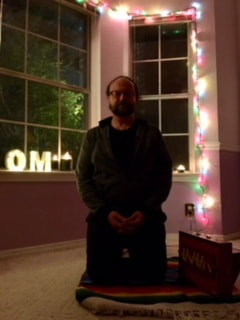
We live in a culture where more is the sign of success. More income, more money, more clients, "more" car, house, clothing etc. This "more" type of success flows over into meditation as well and I, for one, am often skeptical about meditation retreats which require lengthy periods of a person's time such as ten day intensive meditation retreats, a full month, a full year and even three year solitary retreats.
I'm not alone in this way of thinking. Several leading, experienced meditation teachers who have themselves engage in lengthy sitting don't recommend them. One example is modern Chinese Buddhist master, Hsing Yun. He describes long meditation sessions as "dead wood", "still ashes" and "wearisome." He explains that his meditation training took place at various major Buddhist temples in mainland China. "In seven-day Zen retreats, despite my own experience of the extreme joy of meditation, I do not advocate sitting in deep concentration like dead wood and still ashes. For the true essence of Zen originates in the mind, not in solitary and wearisome sitting."
Another experienced meditator who says "less is more" is Ernest Wood, an early British Yogi who went to India in 1908 and remained there for more than four decades studying and engaging in intensive meditation. He feels quality is far more important than quantity of time spend in meditation.
"Constant, quiet, calm practice means regular periodical practice continued for sufficient time to be effective. The results of this practice are cumulative. Little appears at the beginning, but much later on. The time given at any one sitting need not be great, for the quality of the work is more important than the quantity. Little and frequently is better than much and rarely. The sittings may be once or twice a day, or even three times if they are short. Once, done well, will bring about rapid progress; three times, done indifferently, will not. Sometimes the people who have the most time to spare succeed the least, because they feel that they have plenty of time and therefore they are not compelled to do their very best immediately; but the man who has only a short; time available for his practice feels the need of doing it to perfection."
 RSS Feed
RSS Feed